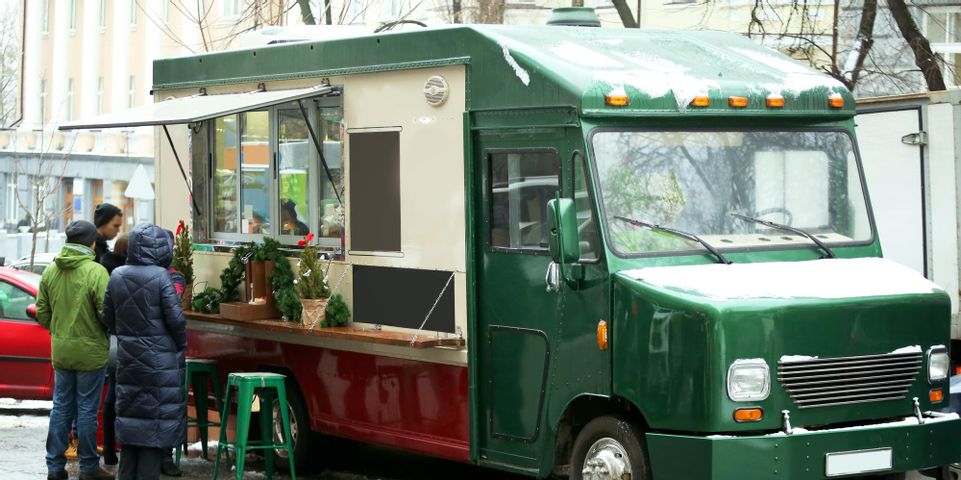5 Winter Maintenance Tips for Food Truck Owners

As winter approaches, food truck owners must be prepared for freezing temperatures that can potentially damage their vehicles. From maintaining the truck’s mechanics to kitchen equipment, more thought must go into every winter outing. Whether you’ve recently decided to start a food truck business or have years of experience, use these tips to help you create a winter maintenance checklist.
How to Maintain Your Food Truck In The Winter
1. Manage Tires
Aside from normal air loss, cold weather can dry and crack rubber. Salt used to keep roads free of ice can also produce the same effect and even rust the rims and bolts that secure tires. It’s common to encounter more frequent flats in a season where traveling a route can be more difficult. It’s helpful to invest in all-weather tires and still check tire pressure and wear daily.
2. Battery Checks
Batteries are more susceptible to losing charge in cold temperatures. Cold, sitting engines require much more power to start, placing an increased strain on batteries. Instead of risking the inconvenience of not being able to start a food truck, make sure your battery is ready for winter. Schedule battery performance checks and replace batteries every three to four years or at signs of start-up failure.
3. Clean Windows
 As snow, road salt, and dirty slush splash onto your truck, it can make windows messy. From ordering windows to your windshield, food trucks give customers a unique view of the mobile kitchen and the person serving them.
As snow, road salt, and dirty slush splash onto your truck, it can make windows messy. From ordering windows to your windshield, food trucks give customers a unique view of the mobile kitchen and the person serving them.
Frequently wipe down windows and invest in heavy-duty wiper fluid to keep the windshield clear for safe driving. Aside from their aesthetic, clean windows will make your truck safe for operation and appear inviting to customers.
4. Supply Storage
For some food truck owners, it’s common to store cooking supplies and non-perishable items on the truck. But during the coldest months, these items can freeze and then crack, lose flavor, or even spoil upon thawing. To prepare, find a new place to keep goods safe and accessible while maintaining sanitary practices. Storing them at home or renting storage may be the best option.
5. Rodent Protection
Parked food trucks offer warm shelter and food scraps for pests and rodents in the winter. Even if you use the truck daily, consider blocking entry points when not in use. Plug the exhaust with steel wool, and put mothballs under the hood and in the trunk. It’s important to keep your truck floor clean and minimize access by critters.
Keep your food truck well-maintained this winter with Shanghai Mobile Kitchen Solution. They provide quality service on everything from appliances to utility repair. They also craft and design custom kitchens and mobile food trucks for those looking to get started. Based in New York City, they also provide service to Philadelphia, Boston, New Jersey, Maryland, and North Carolina. Call (800) 253-4815 or visit them online to learn more.
About the Business
Have a question? Ask the experts!
Send your question

